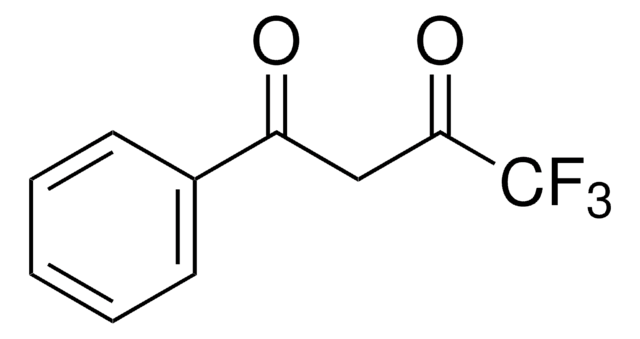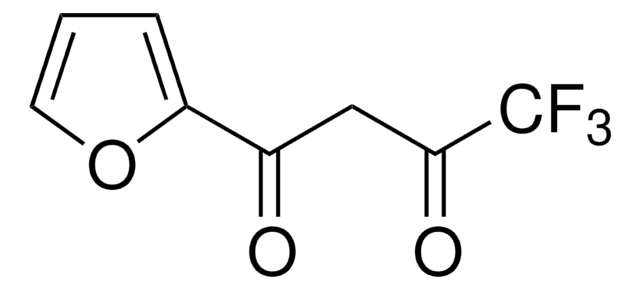230022
Zinc bromide
99.999% trace metals basis
Synonym(s):
Zinc dibromide
About This Item
Recommended Products
Quality Level
Assay
99.999% trace metals basis
form
powder and chunks
reaction suitability
reagent type: catalyst
core: zinc
impurities
≤15.0 ppm Trace Metal Analysis
bp
~670 °C/1 atm (lit.)
mp
394 °C (lit.)
solubility
diethyl ether: slightly soluble(lit.)
ethanol: very soluble(lit.)
SMILES string
Br[Zn]Br
InChI
1S/2BrH.Zn/h2*1H;/q;;+2/p-2
InChI key
VNDYJBBGRKZCSX-UHFFFAOYSA-L
Looking for similar products? Visit Product Comparison Guide
Application
It can be used as starting material to prepare poly(ethylene oxide)/ zinc salt systems, which can be used as polymer electrolytes.
Itcan also be used to prepare ZnO nanoparticles.
Signal Word
Danger
Hazard Statements
Precautionary Statements
Hazard Classifications
Acute Tox. 4 Oral - Aquatic Chronic 2 - Eye Dam. 1 - Skin Corr. 1B - Skin Sens. 1
Storage Class Code
8A - Combustible corrosive hazardous materials
WGK
WGK 3
Flash Point(F)
Not applicable
Flash Point(C)
Not applicable
Personal Protective Equipment
Choose from one of the most recent versions:
Certificates of Analysis (COA)
Don't see the Right Version?
If you require a particular version, you can look up a specific certificate by the Lot or Batch number.
Already Own This Product?
Find documentation for the products that you have recently purchased in the Document Library.
Customers Also Viewed
Articles
Colloidal quantum dots (CQDs) are semiconducting crystals of only a few nanometers (ca. 2–12 nm) coated with ligand/surfactant molecules to help prevent agglomeration.
Our team of scientists has experience in all areas of research including Life Science, Material Science, Chemical Synthesis, Chromatography, Analytical and many others.
Contact Technical Service












